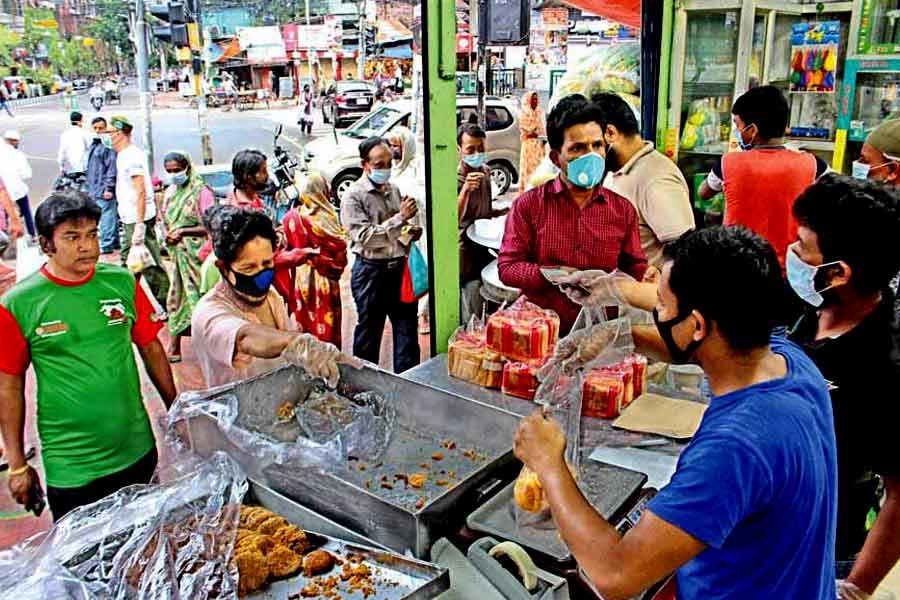
Published :
Updated :

Like healthcare facilities, medicine shops, suppliers of utilities including water and electricity, hotels and restaurants serving foods are also providing an essential service to the public. But before the gazette notification on the National Industrial Policy-2022 or NIP-22, for short, was issued in late September last year, these hotels and restaurants widely distributed throughout the country were categorised as business entities in the informal sector. However, thanks to the new industrial policy, the eatery service has now been enlisted as one of the 22 service sector industries. As a consequence, henceforth, they would have access to various government services like gas, water electricity and bank loans on easy terms that businesses in the formal sector are already enjoying.
So, with the adoption of the new industrial policy, it is expected that the eatery sector will also be brought under the five-year (June 2022 to July 2027) national action plan for the informal sector and included in the database to be created for the purpose. It is worthwhile to note at this point that many restaurants with modern setup, better working condition and pay structure have of late been springing up in different corners of the country, especially in the urban areas. But there are also thousands of traditional restaurants in the country, most of which are but a hole-in-the-wall and have no recruiting policy as such, nor do they have any wage structure for their workers. As they have no organisation, the idea of workers' right does not simply exist in this segment of hotels and restaurants. Hopefully, the government would include these neglected restaurant workers in the national action plan for the NIP-22, especially in the database being developed. The leaders of eatery sector are learnt to have urged the government to frame policies, rules and regulations for the new industrial policy in keeping with the current needs of the sector.
There is no question that the plea the eatery sector leaders have made to the government deserves the latter's highest attention. This is simply because, according to the Hotel and Restaurant Surrvey-2021 conducted by the Bangladesh Bureau of Statistics (BBS), the number of the hotels and restaurants in the country increased from 0.27 million in FY 2010 to 0.43 million in FY FY2020, which is an increase by about 60 per cent. Obviously, the employments those eateries have generated during that span of a decade have also more than doubled from about 1.0 million (0.93 million, to be exact) to 2.28 million in FY2020.
Besides, another 10 million people depend on the sector. Therefore, the contribution that these hotels and restaurants are making to the economy is also huge. According to the BBS's survey, the value addition of these eateries to the Gross Domestic Product (GDP) has increased more than sevenfold from Tk119 billion in 2010 to Tk 879 billion in 2020 in the decade under consideration. If the government provides the eateries with necessary financial and policy support as indicated in the NIP-22, they may emerge as the most potential subsector in the service industry. Then it is not just for their economic potential, the eateries' importance lies also in the fact that they are going to emerge as one of the largest employment-generating sectors of the country. This is more so why the eatery sector should deserve the government's special attention.


 For all latest news, follow The Financial Express Google News channel.
For all latest news, follow The Financial Express Google News channel.